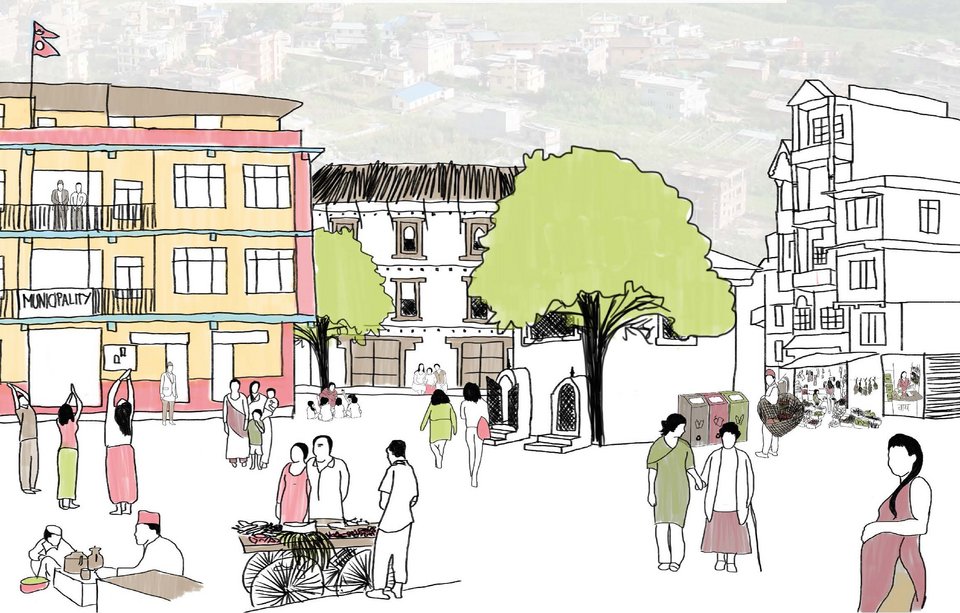
Master thesis | Amando Reber | awarded as best final thesis |winter semester 2018/19
Global population growth and progressive climate change are affecting people's everyday lives. A high demand for land and increasing extreme weather events are creating new challenges, which consist in reducing vulnerability and developing sustainable and resilient societies. Particularly affected are developing countries with little know-how and lacking capacities to implement sustainable structures. The topicality of this topic makes it essential to deal with this issue in detail at international level.
Nepal is one of the poorest countries in South Asia. A rapidly growing population as well as rural exodus and migration under the sign of demographic change generate rapid, uncoordinated urbanisation processes and increase the vulnerability of society. The Kathmandu Valley, for example, currently holds a quarter of Nepal's total urban population. The metropolis is growing and merging with its periphery, villages are growing into cities. On the southern edge of the Kathmandu Valley lies the small town of Pharping, which has grown rapidly from a rural village to a small town in recent years.
In the context of this work, strategies for adaptation to climate change and the development of resilient structures from a low-budget perspective are to be developed for Pharping. For this purpose, the high German urban planning standard will be broken down to essential questions and used to develop implementation measures. The basis for the concept is a detailed on-site analysis in which interviews were conducted with both residents and the mayor and a photo documentation was prepared.
The work was supervised by Prof. Dr. Philipp Dechow and Prof. Markus Binder
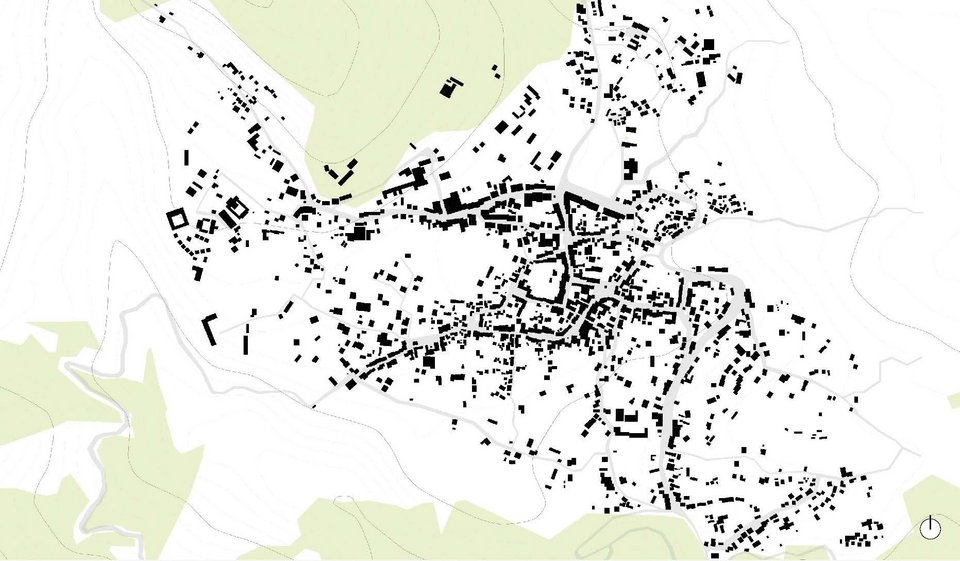
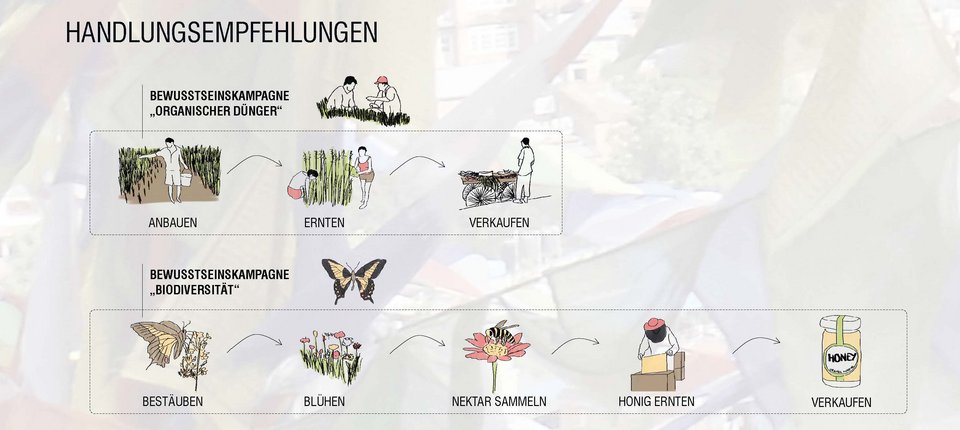
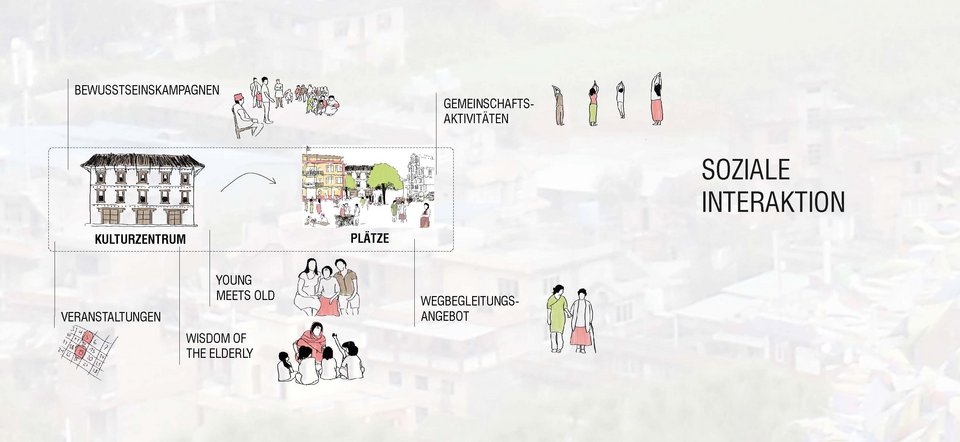
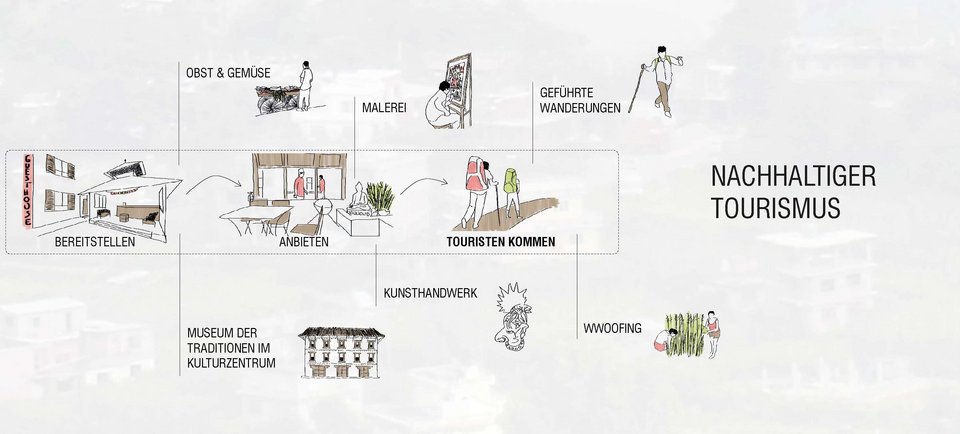
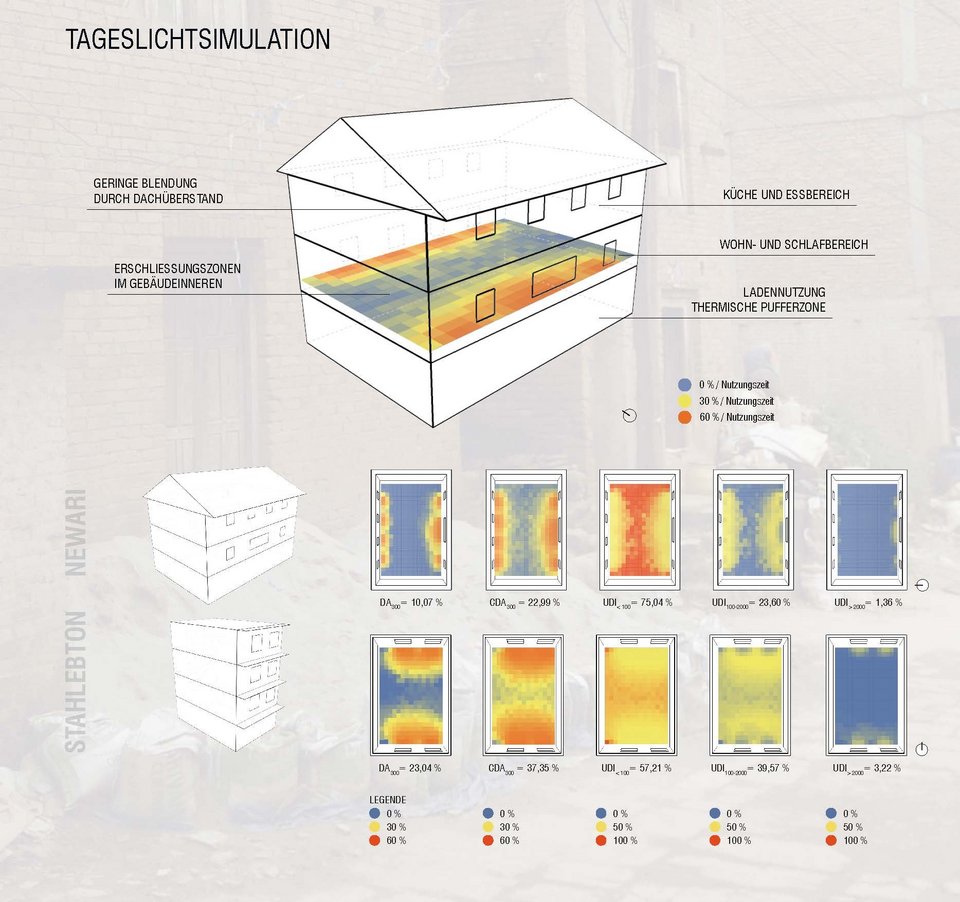
![[Image: HFT Stuttgart] Bewerbung der Best of 2025 Ausstellung](/fileadmin/Dateien/Architektur-Gestaltung/Architektur-Gestaltung/Inhalt-Basic-Page/BEST-OF-2025/architektur-news-bestof-2025-headerbild.jpg)